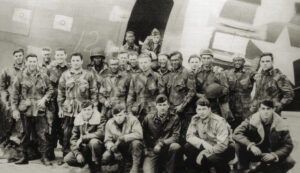The Counterfeiters (2007)
Director: Stefan Ruzowitzky. Time: 98 minutes. Color. Subtitles.
Think of The Counterfeiters as a cross between Schindler’s List and Stalag 17 with a dash of Downfall— a twisting noir thriller that counts the costs of survival during the Holocaust.
Based on a 1961 memoir, this year’s Oscar winner for Best Foreign Language Film is mostly set at Sachsenhausen between 1941 and 1945. There, 140 or so talented Jews have been filtered out of the camp system to realize Operation Bernhard, a Himmler pet project: the forging of British, then American, money, so the Nazis can flood Allied economies while buying desperately needed raw materials.
We first meet Salomon Sorowitsch (Karl Markovics) after the war. Shabbily dressed, valise in hand, he trudges toward Monte Carlo’s elegant Hotel de Paris. The desk clerk, drolly eying his registration form, requires a deposit. Sally’s unshaven stone face doesn’t twitch. He opens the valise slightly and slides him a packet of money. The clerk’s smooth face alters indefinably; he skillfully whisks out the top two bills and says, with professional deference, “Two hundred dollars will be enough, sir.” With a shave, a haircut, and new duds, Sally strolls to the casino, where he wins big and scores a gorgeous redhead. In his room, she is taken aback at the number on his arm.
Cut to a 1936 Berlin bar, where Sally is the suave center of demimonde attention at his farewell party: he knows the police are closing in. Later, a young Jewish friend brings Aglaia, a young woman in need of travel papers, to Sally’s room. He tries to persuade Sally to forge the papers for her, but Sally shrugs. Aglaia dismisses her friend and seduces Sally; he drops his escape plans. As he tenderly sketches her nude back, she asks why he is a counterfeiter instead of an artist, and he smiles: “It’s easier to make money from making money than it is to make money from making art.” They’re in bed when the door bursts open and police inspector Herzog (Devid Streisow), grinning triumphantly, announces he’s finally caught the world’s greatest forger.
In the Nazi camps, Sally uses his artistic skill to win easier duty and extra morsels. Herzog, now an SS officer, plucks him for the Sachsenhausen team: Operation Bernhard is stumbling. Sally is to oversee quality control.
Handheld camerawork and grainy, gritty color distinguish life at Sachsenhausen. The prisoners tapped for Bernhard are treated slightly better than the other inmates: They have clothes, recycled from dead camp inmates, and cigarettes. They have bunk beds with mattresses and sheets. They eat recognizable food. There is periodic brutality, but Herzog tries to minimize it: he wants to “motivate” these prisoners, leaving them largely to themselves as they set about forging pounds.
Prisoner Adolf Burger (August Diehl) upsets the delicate balance of survival the others maintain. He is fervent, idealistic, and relentlessly opposed to supporting the Nazi war effort—even more so once Herzog announces that their fake pounds passed scrutiny by the Bank of England. Burger wants to sabotage Bernhard to help push the Reich into bankruptcy and to mount a prisoner uprising. Inevitably, he and Sally square off.
From here on, the movie resonates with tensions between idealism and pragmatism but never fully resolves them—and that is the point. Like Casablanca’s Rick Blaine, Sally is a cynical, apolitical loner with a secret soul beneath the callus. In large part, The Counterfeiters follows how he taps into, ignores, overrides, or protects his all-too-human core. Sally decides to protect Burger for long perilous months while production stalls, endangering the prisoners’ lives. Those delays castrate the largest counterfeiting operation in history: the war ends before the Nazis can use their for geries. As the Russians draw nearer, Herzog tries to escape with the fake money; Sally stabs him, lets him go, and keeps the cash, snarling to Burger, “I won’t give the Germans the pleasure of being ashamed I’m still alive.”
Cut back to the postwar frame. The next night at the casino, Sally deliberately loses as the redhead watches. She follows him to the shore, champagne and glasses in hand, and they dance. Cop out? Maybe. But it works.
Originally published in the September 2008 issue of World War II Magazine. To subscribe, click here.




